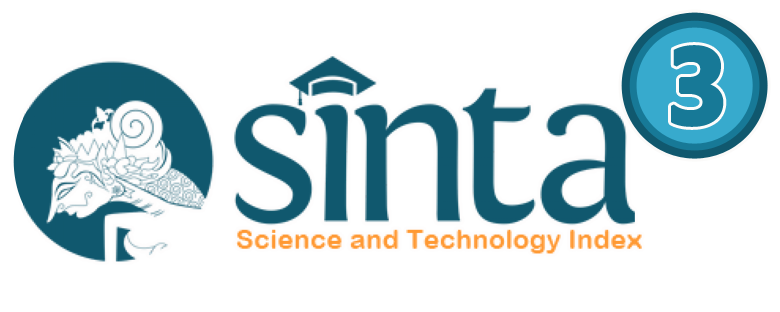Organizational Support Perceived as a Predictor of Psychological Well-being among Employees at the Human Resource Development Center
DOI:
https://doi.org/10.18326/ijip.v7i2.5103Keywords:
Employees, Perceived Organizational Support, Psychological well-beingAbstract
This study uses a quantitative approach with a survey method. The subjects of the study were 103 employees selected through a simple random sampling technique. The instruments used included the Perceived Organizational Support Scale (POSS-16) from Eisenberger et al. (1986) with 16 items, and Ryff's Psychological Well-Being Scale consisting of 18 items. The results of the analysis showed that perceived organizational support had a significant effect on overall psychological well-being (p = 0.000; path coefficient = 0.713). More specifically, POS has a significant effect on five of the six dimensions of PWB, namely autonomy (path coefficient = 0.648; R² = 0.420), environmental mastery (path coefficient = 0.611; R² = 0.373), personal growth (path coefficient = 0.618; R² = 0.381), positive relations with others (path coefficient = 0.608; R² = 0.369), and purpose in life (path coefficient = 0.582; R² = 0.339). However, no significant effect of POS was found on the self-acceptance dimension. This finding confirms that perceived organizational support plays an important role in improving employee psychological well-being, especially in the five main dimensions of PWB. The results of the study provide important implications for organizational management, especially in designing strategies that encourage the creation of a supportive and conducive work environment for improving employee psychological well-being
References
R. Miao and Y. Cao, “High-Performance Work System, Work Well-Being, and Employee Creativity: Cross-Level Moderating Role of Transformational Leadership,” Int. J. Environ. Res. Public Health, vol. 16, no. 9, p. 1640, May 2019, doi: 10.3390/ijerph16091640.
A. Tadesse Bogale and K. L. Debela, “Organizational culture: a systematic review,” Cogent Bus. Manag., vol. 11, no. 1, Dec. 2024, doi: 10.1080/23311975.2024.2340129.
S. Lyubomirsky, F. Kasri, O. Chang, and I. Chung, “Ruminative Response Styles and Delay of Seeking Diagnosis for Breast Cancer Symptoms,” J. Soc. Clin. Psychol., vol. 25, no. 3, pp. 276–304, Mar. 2006, doi: 10.1521/jscp.2006.25.3.276.
W. Tov and E. Diener, “Subjective Wellbeing,” in The Encyclopedia of Cross‐Cultural Psychology, Wiley, 2013, pp. 1239–1245. doi: 10.1002/9781118339893.wbeccp518.
A. Bhanot, “Critical Glance upon the Performance and Well-Being of Employees of Saudi Public Organizations with an Analytical Perspective,” J. Hum. Resour. Sustain. Stud., vol. 10, no. 02, pp. 232–245, 2022, doi: 10.4236/jhrss.2022.102015.
A. M. Supardi, M. Salehah, and S. Komalasari, “The Role of Workplace Well-Being on Employee Work Satisfaction,” 2023, pp. 318–327. doi: 10.2991/978-2-38476-032-9_33.
B. Obrenovic, D. Jianguo, A. Khudaykulov, and M. A. S. Khan, “Work-Family Conflict Impact on Psychological Safety and Psychological Well-Being: A Job Performance Model,” Front. Psychol., vol. 11, Mar. 2020, doi: 10.3389/fpsyg.2020.00475.
J. A. Yogalakshmi and L. Suganthi, “Impact of perceived organizational support and psychological empowerment on affective commitment: Mediation role of individual career self-management,” Curr. Psychol., vol. 39, no. 3, pp. 885–899, Jun. 2020, doi: 10.1007/s12144-018-9799-5.
Z. Xu and F. Yang, “The impact of perceived organizational support on the relationship between job stress and burnout: a mediating or moderating role?,” Curr. Psychol., vol. 40, no. 1, pp. 402–413, Jan. 2021, doi: 10.1007/s12144-018-9941-4.
M. Y. Imran, N. S. Elahi, G. Abid, F. Ashfaq, and S. Ilyas, “Impact of Perceived Organizational Support on Work Engagement: Mediating Mechanism of Thriving and Flourishing,” J. Open Innov. Technol. Mark. Complex., vol. 6, no. 3, p. 82, Sep. 2020, doi: 10.3390/joitmc6030082.
G. Caesens, P. Bouchat, and F. Stinglhamber, “Perceived Organizational Support and Psychological Empowerment,” J. Occup. Environ. Med., vol. 62, no. 7, pp. 526–531, Jul. 2020, doi: 10.1097/JOM.0000000000001889.
A. M. Lasamahu and A. Huwae, “Perceived Organizational Support dengan Psychological Well-Being Pada Karyawan Perusahaan,” Bull. Couns. Psychother., vol. 4, no. 3, Nov. 2022, doi: 10.51214/bocp.v4i3.386.
R. Ahmad, S. Ullah, and S. Majeed, “Perceptions Of Elementary School Teachers Concerning The Academic Optimism In Government Elementary Schools Of Lahore.” [Online]. Available: http://journalppw.com
L. A. Aliddin, D. T. Syaifuddin, Y. Montundu, and S. Marlina, “The Impact of Perceived Organizational Support and Social Support on Employee Performance: The Mediating Role of Organizational Commitment,” J. Econ. Business, Account. Ventur., vol. 27, no. 2, pp. 253–273, Nov. 2024, doi: 10.14414/jebav.v27i2.4610.
R. V. Krejcie and D. W. Morgan, “Determining Sample Size for Research Activities,” Educ. Psychol. Meas., vol. 30, no. 3, pp. 607–610, Sep. 1970, doi: 10.1177/001316447003000308.
C. D. Ryff and C. L. M. Keyes, “The structure of psychological well-being revisited.,” J. Pers. Soc. Psychol., vol. 69, no. 4, p. 719, 1995.
R. Eisenberger, R. Huntington, S. Hutchison, and D. Sowa, “Perceived organizational support.,” J. Appl. Psychol., vol. 71, no. 3, pp. 500–507, Aug. 1986, doi: 10.1037/0021-9010.71.3.500.
L. Rhoades and R. Eisenberger, “Perceived organizational support: A review of the literature.,” J. Appl. Psychol., vol. 87, no. 4, pp. 698–714, Aug. 2002, doi: 10.1037/0021-9010.87.4.698.
I. Ghozali, Aplikasi Analisis Multivariate Dengan Program IBM SPSS 25 Edisi 9. Semarang: Undip, 2018.
R. M. Ryan and E. L. Deci, “Self-determination theory and the facilitation of intrinsic motivation, social development, and well-being.,” Am. Psychol., vol. 55, no. 1, pp. 68–78, 2000, doi: 10.1037/0003-066X.55.1.68.
K. M. Sheldon, E. N. Osin, T. O. Gordeeva, D. D. Suchkov, and O. A. Sychev, “Evaluating the Dimensionality of Self-Determination Theory’s Relative Autonomy Continuum,” Personal. Soc. Psychol. Bull., vol. 43, no. 9, pp. 1215–1238, Sep. 2017, doi: 10.1177/0146167217711915.
M. Y. Lee and A. C. Edmondson, “Self-managing organizations: Exploring the limits of less-hierarchical organizing,” Res. Organ. Behav., vol. 37, pp. 35–58, 2017, doi: 10.1016/j.riob.2017.10.002.
C. D. Ryff, “Happiness is everything, or is it? Explorations on the meaning of psychological well-being.,” J. Pers. Soc. Psychol., vol. 57, no. 6, pp. 1069–1081, Dec. 1989, doi: 10.1037/0022-3514.57.6.1069.
C. D. Ryff and C. L. M. Keyes, “The structure of psychological well-being revisited.,” J. Pers. Soc. Psychol., vol. 69, no. 4, pp. 719–727, 1995, doi: 10.1037/0022-3514.69.4.719.
J. Tan and Y. Wang, “Social integration, social support, and all-cause, cardiovascular disease and cause-specific mortality: A prospective cohort study,” Int. J. Environ. Res. Public Health, vol. 16, no. 9, May 2019, doi: 10.3390/ijerph16091498.
I. Darojat, M. A. Rosid, I. Isrok, R. Fazira, E. Sudarmanto, and M. Hasan, “The Effect of Remote Work Policy, Workplace Flexibility, and Employee Creativity in Enhancing Employee Productivity in State Owned Enterprises in Indonesia,” West Sci. Bus. Manag., vol. 3, no. 01, pp. 133–141, Mar. 2025, doi: 10.58812/wsbm.v3i01.1765.
M. Yertas, “The Role of Training and Continuous Development in Improving Employee Productivity and its Impact on Company Financial Performance,” Atestasi J. Ilm. Akunt., vol. 7, no. 2, pp. 1362–1379, Sep. 2024, doi: 10.57178/atestasi.v7i2.1047.
P. V. Núñez-Cacho Utrilla, F. A. Grande-Torraleja, A. L. Moreno Albarracín, and C. Ortega-Rodríguez, “Advance employee development to increase performance of the family business,” Empl. Relations Int. J., vol. 45, no. 7, pp. 27–45, Dec. 2023, doi: 10.1108/ER-03-2022-0151.
H. Charles-Leija, C. G. Castro, M. Toledo, and R. Ballesteros-Valdés, “Meaningful Work, Happiness at Work, and Turnover Intentions,” Int. J. Environ. Res. Public Health, vol. 20, no. 4, p. 3565, Feb. 2023, doi: 10.3390/ijerph20043565.
M. Erfan and M. Bakri, “Analysis of Employee Development Strategies to Improve Skills and Motivation in the Company,” Adv. Manag. Financ. Report., vol. 3, no. 3, pp. 729–745, Aug. 2025, doi: 10.60079/amfr.v3i3.602.
J. Dutton, A. Carlsen, and S. Maitlis, “Building high-quality connections.,” in More activities for teaching positive psychology: A guide for instructors., Washington: American Psychological Association, 2025, pp. 261–270. doi: 10.1037/0000417-023.
A. Kun and P. Gadanecz, “Workplace happiness, well-being and their relationship with psychological capital: A study of Hungarian Teachers,” Curr. Psychol., vol. 41, no. 1, pp. 185–199, Jan. 2022, doi: 10.1007/s12144-019-00550-0.
R. A. Syahrial and J. Tanuwijaya, “Job Satisfaction, Workplace Spirituality, and Organizational Citizenship Behavior and Their Impact on Employee Performance at PT Bukit Makmur Mandiri Utama,” J. Manaj., vol. 14, no. 2, pp. 264–276, Jun. 2023, doi: 10.32832/jm-uika.v14i2.11172.
D. E. Super, “A life-span, life-space approach to career development,” J. Vocat. Behav., vol. 16, no. 3, pp. 282–298, Jun. 1980, doi: 10.1016/0001-8791(80)90056-1.
C. Asavanirandorn, W. Pechdin, and N. T. Q. Trang, “Identifying Factors Influencing Productivity of Older Workers in Service Sector: A Case Study in Pilot Companies in Thailand,” Behav. Sci. (Basel)., vol. 12, no. 8, p. 268, Aug. 2022, doi: 10.3390/bs12080268.
J. Koen, U.-C. Klehe, and A. E. M. Van Vianen, “Training career adaptability to facilitate a successful school-to-work transition,” J. Vocat. Behav., vol. 81, no. 3, pp. 395–408, Dec. 2012, doi: 10.1016/j.jvb.2012.10.003.
H. Kurniawati, E. Widiasari, Z. Zalafi, S. A. Putri, K. Hidayah, and N. Q. A’yun, “Career Intervention to Enhance Students’ Career Maturity,” Int. J. Multidiscip. Res. Anal., vol. 06, no. 04, Apr. 2023, doi: 10.47191/ijmra/v6-i4-55.
Downloads
Published
Issue
Section
License
Copyright (c) 2025 IJIP : Indonesian Journal of Islamic Psychology

This work is licensed under a Creative Commons Attribution-ShareAlike 4.0 International License.

 Indonesian Journal of Islamic Psycology is licensed under a
Indonesian Journal of Islamic Psycology is licensed under a 


